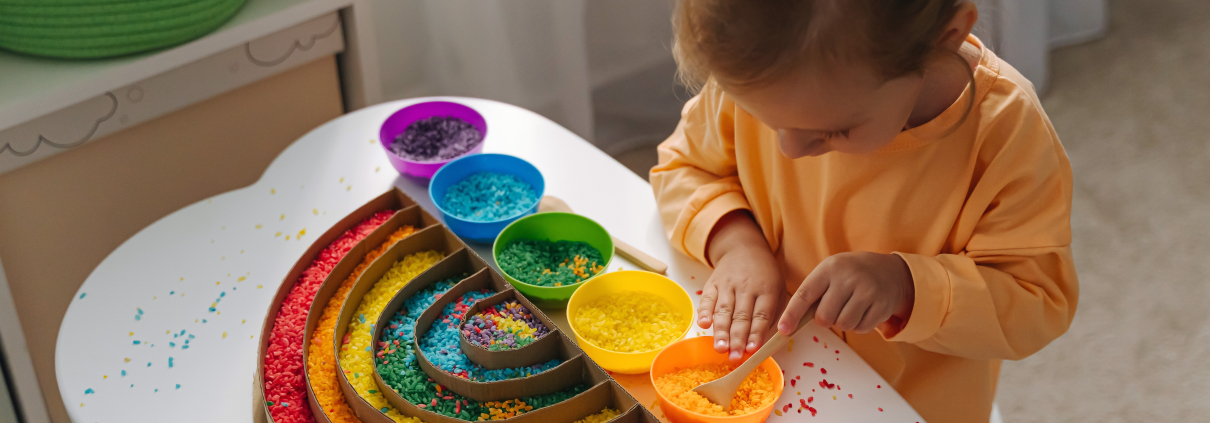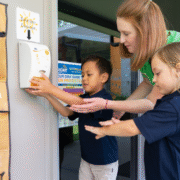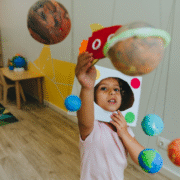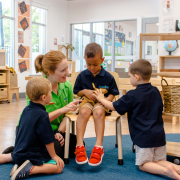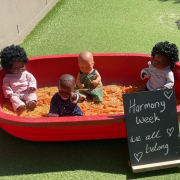Understanding Play-Based Learning
In recent years, the educational landscape has witnessed a significant shift towards play-based learning curricula, particularly in early childhood education. This approach recognises the inherent value of play as a fundamental aspect of how children learn and develop. In this blog, we will explore play-based learning, its key principles, and its numerous benefits to young learners.
What is Play-Based Learning?
Play-based learning is an educational philosophy that emphasises the importance of play as a primary mode of learning for children. Unlike traditional, teacher-directed instruction, play-based learning encourages children to engage in hands-on, experiential activities that stimulate curiosity, creativity, and critical thinking. This curriculum is designed to be flexible, allowing children to explore their interests and learn at their own pace.
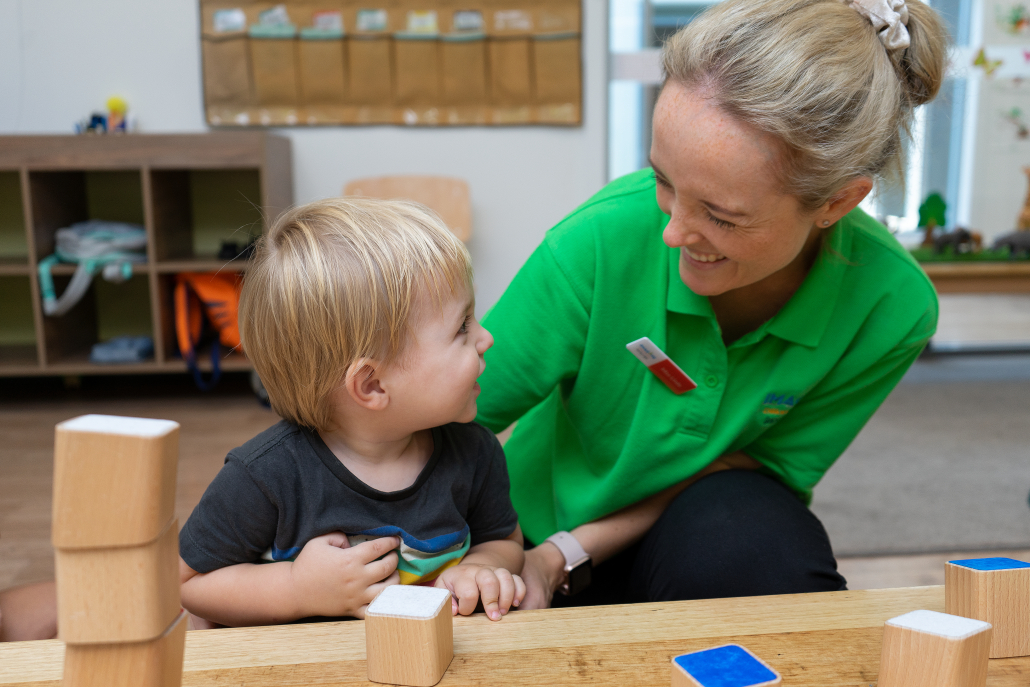
Key Principles of Play-Based Learning
- Child-Centred Approach: At the heart of play-based learning is the belief that children are active participants in their own learning. Educators serve as facilitators, providing guidance and support while allowing children to take the lead in their exploration.
- Integration of Learning Areas: Play-based curriculum often integrates various learning domains, such as social-emotional, cognitive, physical, and language development. Through play, children can engage in activities that promote multiple skills simultaneously.
- Real-Life Experiences: Play-based learning often involves real-life scenarios and experiences, allowing children to make connections between their play and the world around them. This relevance enhances their understanding and retention of information.
- Collaboration and Social Interaction: Play encourages collaboration and social interaction among children. Through group activities, children learn to communicate, negotiate, and work together, fostering essential social skills.
- Encouragement of Creativity: Play-based learning nurtures creativity by providing children with the opportunities to express themselves through imaginative play, art, music, and storytelling. This creative exploration is vital for cognitive and emotional development.
Benefits of Play-Based Learning
- Enhanced Cognitive Development: Play-based activities stimulate critical thinking and problem-solving skills. Children learn to ask questions, experiment, and find solutions, which are essential cognitive skills for lifelong learning.
- Improved Social Skills: By engaging in cooperative play, children develop social skills such as sharing, empathy, and conflict resolution. These interactions help them build friendships and navigate social dynamics effectively.
- Emotional Growth: Play allows children to express their emotions and experiences in a safe environment. Through role-playing and imaginative scenarios, they can explore feelings, learn self-regulation, and develop emotional resilience.
- Physical Development: Many play-based learning activities involve physical movement, which supports the development of gross and fine motor skills. Activities such as climbing, jumping, and manipulating objects enhance coordination and overall physical health.
- Increased Motivation and Engagement: Play-based learning fosters intrinsic motivation. Children are more likely to engage deeply with activities that they find enjoyable and interesting, leading to a positive attitude towards learning.
- Preparation for Future Learning: The skills acquired through play-based learning set a solid foundation for future academic success. Children develop a love for learning, curiosity, and the ability to think critically, which are essential for their educational journey.
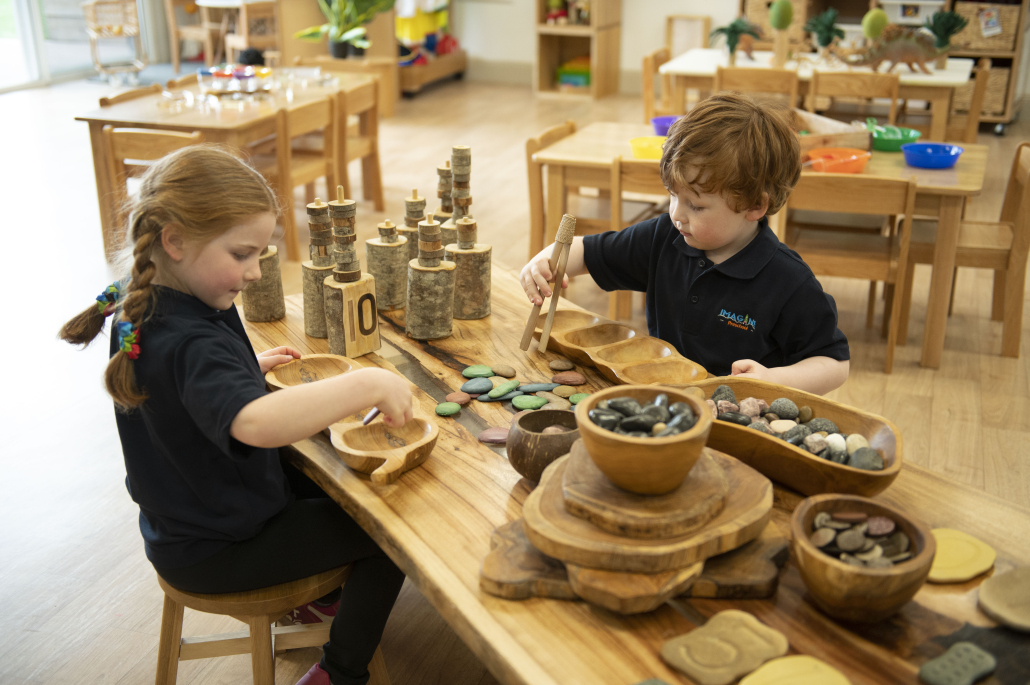
How do we Implement Play-Based Learning in Early Childhood Education?
To effectively implement a play-based learning curriculum, Educators can:
- Create a stimulating environment that encourages exploration and creativity.
- Provide a variety of materials and resources that support different types of play, including sensory play, dramatic play, and construction play.
- Observe and assess children’s interests and learning styles to tailor activities that resonate with them.
- Foster a positive and supportive atmosphere where children feel safe to express themselves and take risks in their learning.
- Have fun, engage and play with children. Choose your moments to sit back and observe, actively engage or wait to be invited into the play. Make play-based learning a fun and engaging time for children to have your full attention.
Play-based learning is more than just fun; it is a powerful educational approach that supports holistic development in children. By embracing play as a fundamental part of the learning process, educators can create enriching experiences that foster cognitive, social, emotional, and physical growth. As we continue to recognize the significance of play in education, we pave the way for a generation of curious, confident, and capable learners ready to thrive in an ever-changing world.
Stay up to date with our Imagine Childcare centres on Facebook to see what amazing play-based activities Educators incorporate into their daily curricula.
- Imagine Childcare and Kindergarten Southport
- Imagine Childcare and Kindergarten Collingwood Park
- Imagine Childcare and Kindergarten Fairfield Waters
- Imagine Childcare and Kindergarten Flagstone
- Imagine Childcare and Kindergarten Holmview
- Imagine Childcare and Kindergarten Jensen
- Imagine Childcare and Kindergarten Marsden
- Imagine Childcare and Kindergarten Maryborough
- Imagine Childcare and Kindergarten Nerang
- Imagine Childcare and Kindergarten Rochedale South
- Imagine Childcare and Kindergarten West End
- Imagine Childcare and Kindergarten Coburg
- Imagine Childcare and Kindergarten Cranbourne
- Imagine Childcare and Kindergarten Doncaster
- Imagine Childcare and Kindergarten Oakleigh South
- Imagine Childcare and Kindergarten Werribee
- Imagine Childcare and Kindergarten Blakeview
- Imagine Childcare and Preschool Ballina
- Imagine Childcare and Preschool Blueridge Park
- Imagine Childcare and Preschool Grafton
- Imagine Childcare and Preschool Nowra
- Imagine Childcare and Preschool Orange
- Imagine Childcare and Preschool Tamworth
Imagine Childcare and Kindergarten Smithfield, Imagine Childcare and Kindergarten Melton, and Imagine Childcare and Kindergarten Andergrove are opening soon, follow them on Facebook to receive regular updates on their progress.

